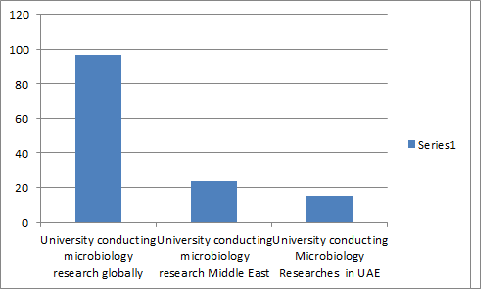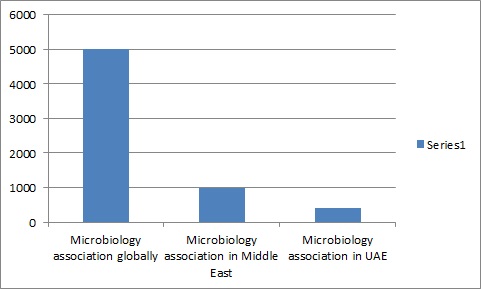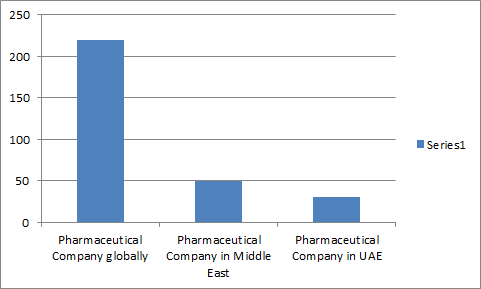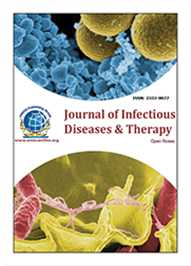Theme: Cutting-Edge Technologies and Novel Research in the Prevention and Treatment of Infectious Diseases.
Bacterial Diseases 2018
ME Conferences invites all the Nobel laureates, speakers, delegates, microbiologist from all over the world to attend Annual Conference on Bacterial, Viral and Infectious Diseases during December 05-06 in Dubai, UAE. The theme of the conference is “Cutting-Edge Technologies and Novel Research in the Prevention and Treatment of Infectious Diseases.” These conferences prompt keynote presentations, Oral talks, Poster presentations and Exhibitions.
Bacterial diseases 2018 is a global platform for researches that afford a new discovery into microbiology, Clinical diagnostics of Bacterial, Viral and Infectious diseases. It also provides a platform to discuss on latest diseases on bacteria and virus. Bacterial Diseases meeting 2018 is hosting presentation of prominent journals and discussion on Bacteriology and Virology. The Organising Committee Member can also invite the young researchers to summit their latest scientific researches for poster session.
Bacterial diseases congress 2018 will provide an international platform for discussion and representing their views on present and future challenges in various infectious diseases, latest diagnosis methods and modern treatments. It gives an opportunities to the young to represent their thought regarding the forensic bacteriology, forensic virology and the techniques regarding this.
ME Conferences organize a series of 3000+ Global Events inclusive of 1000+ Conferences, 500+ Upcoming and Previous Symposiums and Workshops in USA, Europe & Asia with support from 1000 more scientific societies and publishes 700+ Open access Journals which contains over 50000 eminent personalities, reputed scientists as editorial board members.
Target Audience
- Bacteriology Students and Scientists
- Virology Students and Scientists
- Bacteriology Faculties
- Virology Faculties
- Microbiologist
- Medical Colleges
- Researches Laboratories
- Virology Researchers
- Bacteriology Researchers
- Centre for Global Research and Intervention in Infectious Diseases
- Non-Government Organisations
- Dean and Directors
- Graduates and Undergraduates
- Pharmaceutical Industries
- Healthcare Sectors
- Directors of Association and Society
- Experts and Delegates
- Doctors
- Research Institutes
- Industrial Business Entrepreneurs
Conference Highlights
- Bacteriology
- Virology
- Clinical Aspects of Bacterial infection
- Clinical Aspects of Virus
- Epidemiology
- Pathogenesis
- Animal Bacteriology
- Human bacteriology
- Plant bacteriology
- Animal virology
- Agriculture and Plant virology
- Human virology
- Pediatric viral diseases
- Medical virology
- Molecular biology research and viral therapy
Track-1: Bacteriology
Bacteria are single cellular microorganisms that lack a nuclear membrane and are dividing by binary fission. The study of bacteria called as bacteriology. Bacteriological study helps in the field of agricultural, or soil, bacteriology; clinical diagnostic bacteriology; industrial bacteriology; marine bacteriology; public-health bacteriology; sanitary, or hygienic, bacteriology; and systematic bacteriology. Major researches in this field help in development of many useful vaccines. The major advantages are the discovery of antibiotics that are helpful in the diagnosis of various types of disease. Recombinant bacteria are useful in bacteriologic research to manufacture biomolecules (e.g. interferon) needed for research and patient care.
Track-2: Virology
Virology is the study of viruses, about the nucleic acid and protein that are responsible for their replication in plants, animals and humans. It reveal about the study of their distribution, biochemistry, about their histology, ecology and clinical aspects of virus. It is the scientific discipline concerned with the viruses, physiology, molecular biology and viral diseases along with their causal agents. Cells effected by viruses and the changes in its in response to the virus lead to the manifestations of viral disease.
Track 3: Clinical Aspects of Bacterial Infection
Clinical aspects or analysis of bacterial diseases and Clinical bacteriology supports the diagnosis of diseases by different types of clinical methods. There are different types of specimens that are used in cases report in clinical pathology. They are blood, urine, sputum, faeces, and other body fluids, which deals with the health care, especially the diagnosis and treatment of different types of disorders in our body.These specimen specially can be use in the diagnosis and treatment of disorder in female reproductive system.
Track-4: Clinical Aspects of Virus
Clinical aspects of virus supports the diagnosis and treatment of viral infectious diseases by using different types of clinical methods.Clinical aspect of an infection is the behavioural pattern of a virus inside a host after the beginning of the infection and its pathogenesis inside the body. It may be per-acute, acute, sub-acute, chronic or intermittent. It is very much essential to know the clinical aspects to understand the disease and the behavioural pattern of the viral agent and its growth inside the host body which would ultimately lead to spreading of the infection. Different types of specimens are use to detect the viral infections.
Track-5: Epidemiology
Epidemiology is a field of medicine uses to studies the occurrence, causes and its effects on population. It has a key role in protecting public health and can provide valuable information for developing new medicines. It is used to plan and evaluate strategies to prevent illness as well as guide to the patients in whom disease has already developed. Its study include causation of diseases, transmission of diseases, forensic epidemiology, Occupational epidemiology, screening and the treatment effects such as in clinical trials.
Track-6: Pathogenesis
Pathogenesis is the term used to describe the origin and development of a disease. It is determined by the balance between host and virus. The pathogenesis of infectious diseases describes the mechanisms of its development, progression, and either persists or is resolved. To understand the pathogenesis of an infectious disease at the cellular and molecular levels is difficult for discovering, developing, and implementing methods to prevent infection, and to improve patient outcomes after treatment.
Track-7: Animal Bacteriology
Animal bacteriology is the health Diagnostic Center provides high quality, detailed, and completes diagnostic method of bacterial diseases in animals. Several major groups of bacteria are considered to be very significant in animal health and welfare. Some of these bacteria are very pathogenic and their level of pathogenicity cause different kinds and levels of infections to livestock, pets and wildlife.
Track-8: Human Bacteriology
It is the study about the bacterial diseases, their causal agents, morphology, and diagnostics method in human. The most common human bacterial diseases are Pneumonia, Cholera, Influenza, Tuberculosis, Measles, Typhoid, Malaria, Anthrax. Mostly recently discovered viruses are Rift Valley Virus, Oropouche, Mayaro. The Symptoms of Genus leptospirosis is high fever, headache, chills, and vomiting, and may include jaundice, red eyes, abdominal pain, diarrhea. Some exotic diseases are zoonotic which can pass between animals and humans, such as rabies.
Track-9: Plant Bacteriology
Plant bacteriology involves the scientific study of bacteria identification, disease etiology, disease cycles, economic impact, epidemiology of plant diseases, plant disease resistance, the way in which plant diseases affect humans and animals. Some bacteria causes a small proportion of plant diseases, this does not mean that these diseases are unimportant. Pathogenic tests can be done for the prevention of disease. Both natural and cultivated plants carry genetics disease resistance, but there are numerous examples of devastating plant disease.
Track-10: Animal Virology
It is the comprehensive services by providing excellent diagnostic tests as well as to provide consultative services in the area of veterinary virology. Especially it is method of detection of viral infections in most of domesticated species by offering tests that isolate viruses by detecting viral antigens. This detects antibodies that are made in response to infections. The rise of the severe acute respiratory syndrome (SARS) in the human population which is coming from an animal source highlights the importance of animals in harboring infectious agents. The research on animal viral diseases has made a contribution to understand the viral morphology, their replication, molecular biology and interaction with the host to know its epidemiology.
Track-11: Agriculture and Plant Virology
Plant Virology is a field of Plant Pathology and Environmental sciences. Plant virology deals with Viruses & the diseases cause by Virus like Pathogens. Tobacco mosaic infection (TMV) is a single stranded RNA virus that defects an extensive variety of plants, particularly the tobacco and different individuals of the family Solanaceae. . Plant viral vectors are viewed as a option for recombinant protein production. In this agricultural virology the morphology of virus, its physiology, its host- pathogen interaction can be study. Plant diseases that are cause by virus called as plant virology.
Track-12: Human Virology
Human Virology deals with study of viruses that affect human. It provides a clinically-relevant opportunity for distributing information on human viruses. The researches discussions on basic science, pathogenicity, prevention, and epidemiology; on the latest advances, trends, and technology; and quick publication of late-breaking information. Human Virology covers the recent breakthrough discoveries in the field of Human. Ebola Virus disease, HIV virus , Avian influenza , Measles and SARS, hepatitis virus cause serious diseases in human. The relative ability of viruses to cause disease is terms as virulence
Track-13: Pediatric Viral Diseases
Pediatric virology is deals with the viral diseases during early childhood stage or in embryo stage. It is not an isolated discipline but the syndromes associated with viral infection are modified by the unique characteristics of infancy and childhood. The most common viral fever in childhood stage is the seasonal flu or influenza. But children can catch milder viral. Mostly the childhood viral infections are not serious and include varieties of illnesses as colds with a sore throat, vomiting and diarrhea, and fever with a rash. But there are some viral illnesses that cause more serious disease, such as measles. The VZV causes a disease named chickenpox which most commonly affecting children. Polio is highly infectious diseases that primarily affects children under five years of age. The most common Pediatric cancers are leukemia , brain tumors and lymphomas .
Track-14: Medical Virology
Medical Virology or clinical virology deals with isolating several viruses responsible for diseases and can be detected by various direct or indirect techniques. Diagnostic tests can be grouped into 3 categories the first one is the direct detection, second one is the indirect examination and the last one is the serology. It mainly deals with cell cultures, serological, biochemical and molecular studies of virus. This field is very useful in detecting the epidemiology and spreading of plants, human and animal viral diseases. Serology refers to the identification of antibodies in the serum. Such antibodies are formed in response to an infection against foreign proteins. By following the serological assay the diagnosis of leptospirosis in Martinique can be possible.
Track-15: Molecular Biology Research and Viral Therapy
Molecular biology is most advance form of research field to detect the infection by going through the molecular composition of virus. Molecular therapy includes various types of techniques such as DNA cloning, proliferation of DNA, bacterial transformation , transfection, chromosome integration, cellular screening, cellular culture, extraction of DNA, DNA polymerase DNA dependent, reading and writing DNA, DNA sequencing, DNA synthesis, hybridization. Most important techniques are polymerase chain reaction(PCR), Southern blotting, Northern blotting. Viral therapy for cancer, also called oncolytic viral therapy. Oncolytic viral therapy can be use for the treatment of pancreatic cancer or pancreas cancer.
Related Conferences
Bacteriology meeting | Infectious diseases meeting | virology conferences | Virology and Infectious diseases congress
- 7th International Conference on Bacteriology and Infectious Diseases, June 4-5, 2018, Osaka, Japan
- 11th World Congress on Virology and Infectious Diseases May 17-18, 2018 Tokyo, Japan,
- 3rd International Conference on Applied Microbiology and Beneficial Microbes ,June 6-7, 2018 Osaka, Japan
- · 2nd International Conference on Medical and Clinical Microbiology July 16-17, 2018 Melbourne, Australia
- 11th Global Infections Conference July 26-27, 2018 Melbourne, Australia
- 2nd International Conference on Medical and Clinical Microbiology, July 16-17, 2018 Melbourne, Australia
- 8th Global Summit on Microbiology and Infectious Diseases, February 22-23, 2018 Paris, France.
- · Microbial Biotechnology Conferences, September 17-18, 2018 Lisbon, Portugal
- International conference on Clinical and Pharmaceutical Microbiology, October 18 - 20, 2017, Rome, Italy
- 5th International congress on infectious diseases, March 1-2 2018, Berlin Germany
- 6th International Congress on Bacteriology and Infectious Diseases, May 21-22, 2018, New York , USA 17th American Paediatrics Healthcare & Infectious Diseases Congress June 27-28, 2018, Vancouver, Canada
- 11th Virology and Infectious Diseases Congress, July 27-28, 2018 , Vancouver, Canada
Related Societies:
Pan-Pacific Surgical Association Congress, Federation of Asia-Pacific Microbiology Societies, Malaysian Society of Infectious Diseases, Asia Pacific Society of Clinical Microbiology and Infection, The Philippine Society for Microbiology, Society for Applied Microbiology, Swiss Society for Infectious Disease, The American Association of Immunologists, The American Society for Clinical Investigation, International union of microbiological societies, Infectious Diseases Society of America, National Foundation for Infectious Diseases, New York Mycological Society, Puget sound Mycological Society, Mycological Society of Toronto, The American Association of Immunologists, The American Society for Clinical Investigation, International union of microbiological societies
Bacterial, Viral and Infectious Diseases scheduled during December 05-06, 2018 in Dubai, UAE provides a platform for research that gives new views into Microbiology, Molecular bacteriology and Virology, Clinical diagnostic methods of Virology and Bacteriology, Bacterial and Viral infections, Animal Bacteriology and Virology, Paediatric Virology, Human Bacteriology and Virology, Medical virology.
Bacteriology and Virology have progressively an important to human society. These are the most important branches of life sciences. As we know that microbes directly or indirectly affecting all the activities of our life like, food, clothing, shelter, health hygiene etc., microbiology has made vast progressive in all these fields to improve the quality of our life and for the betterment of our life. Infectious diseases are very much dangerous and have been conquered by new drugs, good quality of agricultural crops improved by using new techniques of genetic engineering and these are becoming possible only because of Microbiology.
In the new bio economy, Bacterial, Viral and Infectious disease play a very important role in representing major global challenges, upgrading waste streams to valuable food ingredients, counteracting life-style diseases and antibiotic resistance through the gut biota, making crop plants more resistance to extreme climatic change conditions, and functioning as host for the production of new biological drugs for treatments of diseases.
Why it’s in Dubai, UAE:
Bacterial, Viral and Infectious Diseases 2018 will be held in Dubai. Dubai is the largest and most populous city in the United Arab Emirates. On the southeast coast of the Persian Gulf, it is the capital of the Emirate of Dubai, one of the seven emirates that make up the country. Dubai is a global city and is a major business and transport hub of the Middle East. Dubai is situated on the Persian Gulf coast of the United Arab Emirates and is roughly at sea level. The emirate of Dubai shares borders with Abu Dhabi in the south, Sharjah in the northeast, and the Sultanate of Oman in the southeast.
Major University doing Researches on Bacteriology and Virology in Middle East
- University of Exeter
- American University of Beirut
- King Fahd University of Petroleum & Minerals
- King Saud University
- King Abdul-Aziz University
- United Arab Emirates University
- Major University doing Researches on Bacteriology and Virology in UAE
- University of Sharjha
- United Arab Emirates University
- Abu Dhabi University
- Ajman University
Major University doing Researches on Bacteriology and Virology Globally:
- University of Tokyo, Japan
- Osaka University, Japan
- Harvard University, United states
- Kyoto University, Japan
- University of Adelaide, Australia
- University of oxford, United Kingdom
- Zhejiang University, China
- National university of Singapore, Singapore
- University of Chicago, United States

Major Bacteriology and Virology Researches centre globally:
- Centre for Emerging Viral Infections Research
- Hunter Medical Research Institute
- Centre for Global Research and Intervention in Infectious Diseases
- Infectious and Immunologic Diseases Research Centre
Major Bacteriology and Virology Research Centre Middle East:
- Qatar Biomedical Research Institute
- Molecular Biology and Genetics Lab
- Freiburg Medical Laboratory

Major Bacteriology and Virology Associations Globally:
- International Union of Microbiological Societies
- British Infection Association
- International Retroviology Association
- North American Mycological Association
- Infectious and Immunologic Diseases Research Centre
- Global virus network
- HIV Medicine Association
Major Bacteriology and Virology Association around Middle East
- Pharmacy Organization
- Egyptian American Medical Association
- Coptic Medical Association
- The Journal of Egyptian Medical Association
Major Bacteriology and Virology Association in UAE
- Emirates Medical Association
- New York University, Abu Dhabi
- Masdar Institute

Major Bacteriology and Virology Societies Globally:
- International Union of Microbiological Societies
- Society for general Microbiology
- Federation of Infection Societies
- Canadian Society of Microbiologists
- Federation of European Microbiological Societies
- Pan-American Society for Clinical Virology
- European Society for Virology
- International AIDS Society
Major Bacteriology and Virology Societies around Middle East
- Asia- Pacific Society for Medical Virology
- European Society for Veterinary Virology
- Italian Society of Virology
- Hellenic Society for the Study of Prevention of AIDS
- Iranian Society of Microbiology
- Bacteriology Association and Societies
- Virology Association and Societies
Major Bacteriology and Virology Societies in UAE
- Saudi Society for Medical Microbiology and Infectious Diseases (SSMMID)
- Hellenic Society for the Study & Prevention of AIDS
- Norwegian Society for Virology
- Danish Society for Virology
- Italian Society of Virology

Global pharmaceutical industries manufacturing antimicrobial products
- Merck and Co
- Johnson and Johnson
- GlaxoSmithKline
- Bristol-Meyers Squibb
- Aventis
- Pharmacia
- Novartis
- F. Hoffmann-La Roche
- Astra Zeneca
- Abott Laboratories
- Wyeth
- Eli Lilly and Co
- Schering Plough
- Bayer
Pharmaceutical industries manufacturing antimicrobial products in Middle East
- Tabuk Pharmaceutical
- Bayer Middle East FZE
- CAD Middle East Pharmaceutical
- Genpharm Services
- Gilead Science Middle East Office
Pharmaceutical industries manufacturing antimicrobial products in UAE
- Neopharma
- Life Parma
- Modern Pharmaceutical Company
- Medisal Pharmaceutical Industry

Conference Highlights
- Bacteriology
- Virology
- Clinical Aspects of Bacterial infection
- Clinical Aspects of Virus
- Epidemiology
- Pathogenesis
- Animal Bacteriology
- Human bacteriology
- Plant bacteriology
- Animal virology
- Agriculture and Plant virology
- Human virology
- Pediatric viral diseases
- Medical virology
- Molecular biology research and viral therapy
To share your views and research, please click here to register for the Conference.
To Collaborate Scientific Professionals around the World
| Conference Date | December 05-06, 2018 | ||
| Sponsors & Exhibitors |
|
||
| Speaker Opportunity Closed | Day 1 | Day 2 | |
| Poster Opportunity Closed | Click Here to View | ||
Useful Links
Special Issues
All accepted abstracts will be published in respective Our International Journals.
- Journal of Bacteriology & Parasitology
- Journal of Infectious Diseases & Therapy
- Journal of Medical Microbiology & Diagnosis
Abstracts will be provided with Digital Object Identifier by































